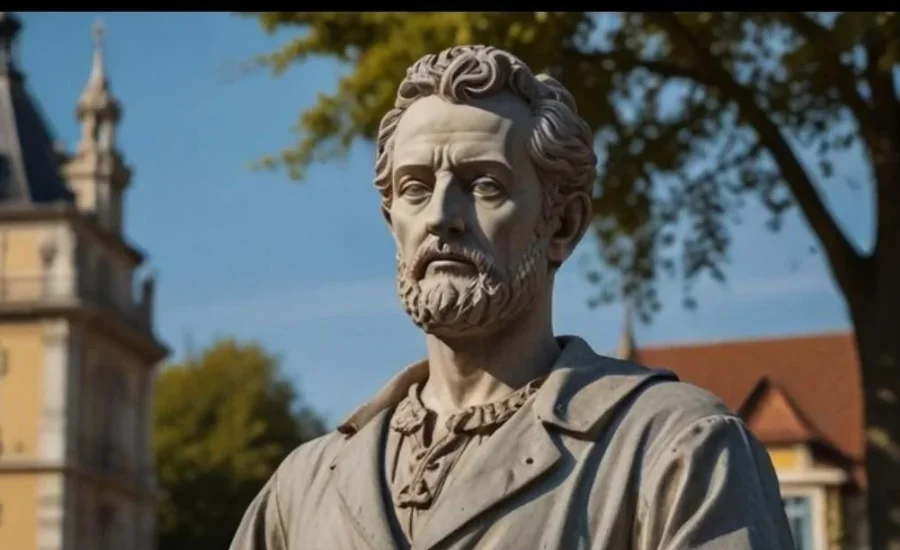
Heinrich Servais Germany’s influential figure from the 1500s, played a vital role in shaping the country’s history. Known for his work during the mid-1500s, Servais contributed to changes that helped guide Germany’s future. But who exactly was he, and what did he do? In this post, we’ll dive into his life and explore how he made an impact during this significant time.
Heinrich Servais, Germany’s reformer and politician, is remembered for his leadership during the 16th century. His ability to steer through political shifts made him stand out as a crucial leader. Let’s take a deeper look into his life, achievements, and why his role in German history still matters today.
Who Was Heinrich Servais in Germany’s 16th Century?
Heinrich Servais was an important figure in Germany during the 16th century. He was a leader who played a key role in shaping the country’s political landscape at a time when Europe was changing rapidly. Born in the 1500s, Servais came from a background that allowed him to rise in political influence. He had a vision for Germany and worked hard to make it better.
In Germany, during Servais’ time, there were many conflicts and reforms happening. The country was dealing with religious and political challenges. Servais stepped in to help bring stability and order. His leadership skills made him stand out, and he gained the trust of many people in power.
As a politician, Heinrich Servais focused on improving the way the government worked. He wanted to make sure that laws were fair and that the country stayed strong during difficult times. Servais’ dedication to his country left a lasting mark, and he is remembered for the work he did to bring positive change to Germany.
What Heinrich Servais Did for Germany’s Political Landscape
Heinrich Servais had a strong influence on Germany’s politics in the mid-1500s. He helped shape the laws and policies that guided the country during a challenging period. Servais understood the importance of balance, and he worked to ensure that the government stayed stable even when facing tough situations.
Germany was dealing with many changes during this time, especially with the Reformation. Servais worked to create unity among the different political groups. He believed in cooperation and worked hard to make sure everyone’s voice was heard. His leadership helped Germany stay strong.
One of Servais’ key contributions was helping to create new laws that were fair to everyone. He wanted to make sure that both the government and the people were treated equally. This focus on fairness helped to build trust between the rulers and the citizens, making Germany a more peaceful place.
The Legacy of Heinrich Servais in German Politics
The legacy of Heinrich Servais in Germany’s history is one of dedication and leadership. His work in politics continues to be remembered, as his decisions helped shape the future of the country. Servais believed in making Germany stronger through fair laws and a stable government. These ideas still influence political thinking today.
Heinrich Servais’s legacy also lives on in the way Germany handles political challenges. His focus on creating unity and fairness is still used as an example of good leadership. Many historians look back on his time as a period when Germany took important steps toward becoming a more modern and stable nation.
People today can learn from Heinrich Servais’s legacy. His story shows how one person’s dedication can change a whole country. Servais’s impact on German politics proves that strong leadership and a focus on fairness can lead to lasting success.
How Heinrich Servais Shaped Germany’s History in the 1500s
Heinrich Servais played a vital role in shaping Germany’s history during the 1500s. At a time when the country was going through religious reforms and political changes, his leadership brought stability. He understood the importance of finding solutions to keep the country united, and he worked hard to make this happen.
Servais’s ability to navigate through conflicts, especially during the Reformation, helped Germany maintain its structure. His skills in creating laws and guiding political decisions were crucial in keeping the country on the right path. Many leaders relied on his advice and support during tough times.
His work continues to influence Germany’s history today. People still talk about his contributions to law and politics. Servais’s efforts in bringing peace and fairness during such a turbulent time are still remembered as a turning point in Germany’s history.
Key Achievements of Heinrich Servais
- Created fair laws that benefited both the government and the people
- Helped maintain stability during the Reformation period
- Guided Germany’s political decisions in times of conflict
Long-Lasting Impact on German Politics
- Servais’s focus on unity continues to inspire modern political leaders
- His contributions to lawmaking helped shape Germany’s political system
Conclusion
Heinrich Servais was a key figure in Germany’s history. His work as a leader and politician helped shape the country during a time of big changes. Through his leadership, he made sure Germany stayed strong and united, especially during the Reformation. His focus on fairness and creating good laws helped the country become more stable.
Today, Heinrich Servais is remembered for his lasting impact on German politics. His dedication to making the government better and fairer has left a mark that still matters. People in Germany and around the world continue to study his work and see him as a leader who brought positive change during a challenging time.
FAQs
Q: Who was Heinrich Servais?
A: Heinrich Servais was a politician and leader in Germany during the 16th century. He helped guide the country during a time of big changes.
Q: What did Heinrich Servais do for Germany?
A: He created fair laws and helped keep the country stable during the Reformation, making sure the government worked better for everyone.
Q: Why is Heinrich Servais important?
A: Heinrich Servais is important because he helped bring peace and unity to Germany at a time when the country was facing many challenges.





